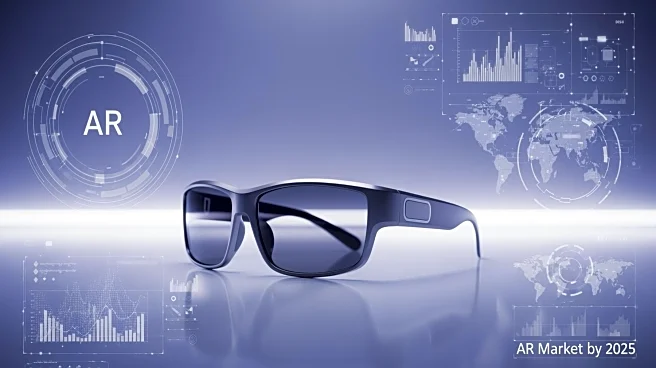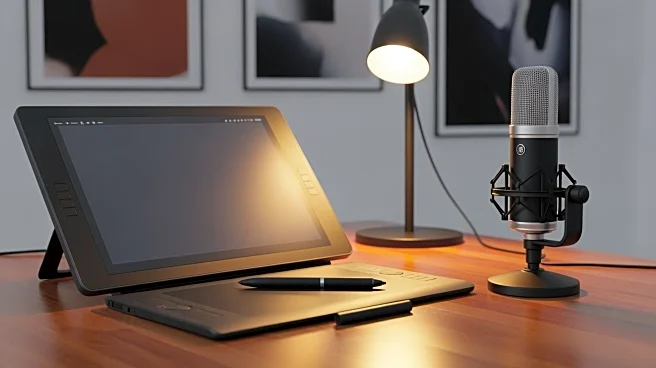What's Happening?
In 2025, major technology companies are pivoting towards smart glasses, aiming to revolutionize the augmented reality (AR) market. Companies like Meta, Apple, and Samsung are leading this shift, with Meta unveiling new Ray-Ban Display demos and Apple reallocating
resources from its Vision Pro headset to focus on smart glasses. Samsung is also entering the market with its Project Moohan, which promises to offer a more affordable Android XR headset. This movement is characterized by a transition from bulky virtual reality (VR) headsets to lighter, more wearable smart glasses that resemble traditional eyewear. The industry is seeing a rapid development of these devices, with a focus on comfort, privacy, and integration of generative AI features. The competition is expected to intensify as companies race to capture the consumer market with both premium and budget-friendly options.
Why It's Important?
The shift towards smart glasses signifies a potential transformation in how consumers interact with AR technology. By making AR more accessible and wearable, these companies are likely to expand the market beyond niche applications to everyday use. This could lead to significant changes in consumer behavior, as smart glasses offer new ways to access information and interact with digital content seamlessly. The competition among tech giants could drive innovation and lower prices, making AR technology more attainable for the average consumer. This development could also impact various industries, including retail, entertainment, and education, by providing new platforms for content delivery and interaction.
What's Next?
As these smart glasses are expected to hit the market by late 2025, consumers and developers alike will be watching closely to see which devices gain traction. The success of these products will depend on their ability to balance functionality with style and privacy concerns. Companies will likely continue to refine their offerings, focusing on battery life, user interface, and app integration. The market's response to these initial releases will shape future developments and could lead to further innovations in AR technology. Stakeholders, including developers and businesses, will need to adapt to these changes, potentially creating new applications and services tailored to smart glasses.
Beyond the Headlines
The introduction of smart glasses raises questions about privacy and data security, as these devices have the potential to record and analyze user interactions in real-time. This could lead to ethical and legal challenges, as companies must navigate user consent and data protection regulations. Additionally, the widespread adoption of smart glasses could influence cultural norms around technology use, as society adjusts to the presence of always-on, wearable devices. The long-term impact on social interactions and personal privacy will be an important consideration as this technology becomes more prevalent.
















